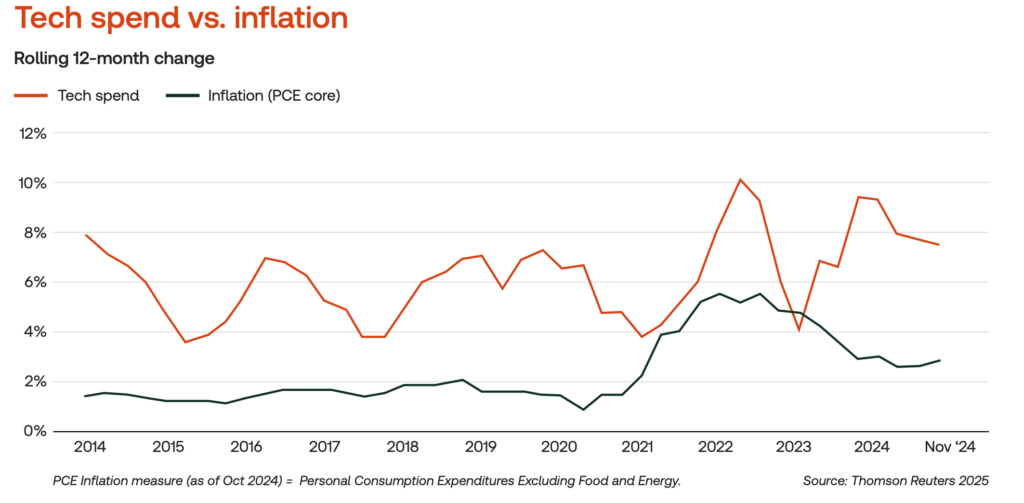Portland Accounting IT Solutions: Benefits of IT Management for CPAs
Proactive IT management is a strategic approach that anticipates and addresses potential issues in IT infrastructure before they escalate into...
5 min read
Nick : Updated on July 24, 2025

Legal work demands precision, speed, and airtight data security. But as firms grow, many find that their core technology struggles to keep up.
Be it mounting IT maintenance costs or concerns about compliance culture, the tools you rely on can either support your practice or hold it back. That's why the cloud vs on-premise legal platform decision becomes critical.
If you're feeling stuck between opinions, this blog will help you understand what each option offers and which one aligns better with your firm’s needs today and down the road.
Table of Contents
4. The Case for On-Premise Legal Platforms
5. Cloud vs. On-Prem: A Side-by-Side Comparison 6. Which Firms Benefit Most from Each Setup? 7. 6 Questions to Guide Your Decision 8. Making the Right Choice for Your Legal Practice |
Choosing between cloud-based and on-premises legal platforms is a business-critical decision that affects how your firm operates every single day.
Think about it: your team’s ability to protect client data or recover quickly after an outage depends on the system you rely on.
And the stakes are only getting higher. Law firms across the U.S. are ramping up their tech investments year after year, some seeing annual increases of over 6%, according to Thomson Reuters.
In certain years, spending has jumped by 10% or more. That’s not pocket change; it’s a sign that firms are betting big on the right infrastructure.

There's so much riding on this choice and it's not simply about which setup is more popular. It's about which one gives your firm the control, speed, and security it needs to thrive.
In recent years, cloud platforms have evolved from a “nice-to-have” to a foundational component of legal tech stacks, particularly for firms that have adopted remote or hybrid work arrangements.
As per the International Legal Technology Association’s 2022 survey, cloud usage among law firms jumped from just 3% in 2020 to nearly 40% in 2022. Such a shift occurs when the benefits speak for themselves.
Popular choices of cloud-based legal platforms include Clio, MyCase, Rocket Matter, and PracticePanther. All of them offer flexible, cloud-native experiences tailored for legal teams.
Before cloud-based tools gained popularity, on-premise platforms were the standard for legal technology. Many firms still use them, especially those with long-established infrastructure or in-house IT teams.
With on-prem systems, your software and data live on servers physically located in your office. That means full control over every detail but also full responsibility.
When law firms evaluate legal tech solutions, one of the most strategic decisions they face is whether to adopt a cloud-based platform or stick with an on-premises setup.
Cloud-based legal platforms are gaining traction due to their affordability and ease of deployment. On the other hand, on-prem solutions still appeal to firms with legacy system dependencies.
It's essential to consider how each model aligns with your firm’s IT capabilities and risk tolerance before making a decision.
Check out this side-by-side comparison to better understand your options:
Parameter |
Cloud legal platforms |
On-prem legal platforms |
Cost |
Lower upfront cost, subscription-based pricing | High initial investment in hardware, licenses, and IT staff |
Accessibility |
Accessible from anywhere with internet access | Typically limited to office network or VPN access |
Maintenance |
Managed by the service provider, including updates and backups | Requires in-house IT team for updates, patches, and backups |
Scalability |
Easily scalable as your firm grows | Scaling often requires new hardware and lengthy setup |
Security |
Strong encryption and monitoring, but relies on provider | Full control over security settings and policies |
Compliance |
Many providers meet legal standards (e.g., HIPAA, SOC 2) | Easier to control local compliance but requires ongoing audits |
Disaster recovery |
Built-in redundancy and automated backup systems | Manual backup setup; disaster recovery planning is internal |
Deployment time |
Quick setup; no hardware required | Slower setup; needs physical infrastructure |
Cloud platforms are best suited for small to midsized firms. If you don’t have a full-time IT team or want predictable monthly costs, the cloud makes sense.
Additionally, with legal tech driving efficiency, 84% of law firms report increased productivity through the use of digital tools. Cloud platforms help you stay ahead without the need for heavy infrastructure.
On-prem platforms, on the other hand, may appeal to firms with strict data residency requirements, custom-built systems, or internal IT teams already in place. Larger or highly specialized practices might prefer the control and customization that come with hosting everything in-house, even if it demands more effort.
Before committing, ask yourself:
1. What are our remote work needs?
If your team works across locations or needs mobile access, the cloud might be a better fit.
2. What are our compliance requirements?
Certain jurisdictions or clients may require strict data control, which may lead you toward on-prem.
3. What’s our budget, both now and in the long term?
The cloud spreads costs over time, while on-prem requires a heavier upfront investment.
4. How fast do we expect to grow?
Cloud platforms scale much faster without hardware limitations.
5. What’s our risk tolerance for downtime or IT disaster recovery?
Cloud options typically include built-in redundancy, while on-prem depends on internal planning.
There is no universal answer when it comes to cloud vs. on-premises legal platforms. What works for a fast-growing, remote-first firm might be completely wrong for a practice rooted in local operations and legacy systems.
The key is to evaluate your regulatory environment and long-term vision, then select a platform that aligns with those needs.
At Heroic Technologies, we offer IT support built specifically for law firms. Our team is experienced and always just a call away to help you stay focused on your clients while we handle the tech.
Connect with us today to see how we can support your legal practice with confidence and care!
Key Takeaways
|
Not necessarily. Cloud platforms offer strong encryption and built-in security, but on-prem can be just as secure if you have the right IT practices and dedicated oversight.
With proper planning and support, cloud migration can be a smooth and minimally disruptive process. Many providers offer phased rollouts to avoid downtime.
Absolutely. A hybrid model allows firms to store sensitive data on-premises while leveraging the cloud for collaboration, scalability, and remote access, offering the best of both worlds.
Proactive IT management is a strategic approach that anticipates and addresses potential issues in IT infrastructure before they escalate into...

Remember when a simple password felt like enough to guard your digital kingdom? Those days are long gone. Industry research, including Verizon’s Data...

Picture this: It’s 2:00 PM on a Tuesday. You’ve just finished a heavy lunch, and now you’re sitting in a dimly lit conference room, or worse, staring...

When most people think of "the cloud," they picture a vast, digital attic where you can stash everything from family photos to mountains of legal...

As more law firms adopt cloud storage, the appeal is obvious. It’s faster to access case files, easier to collaborate across offices, and cheaper...

The legal profession, often deeply rooted in tradition, is no stranger to innovation. From digital case management to advanced cybersecurity,...